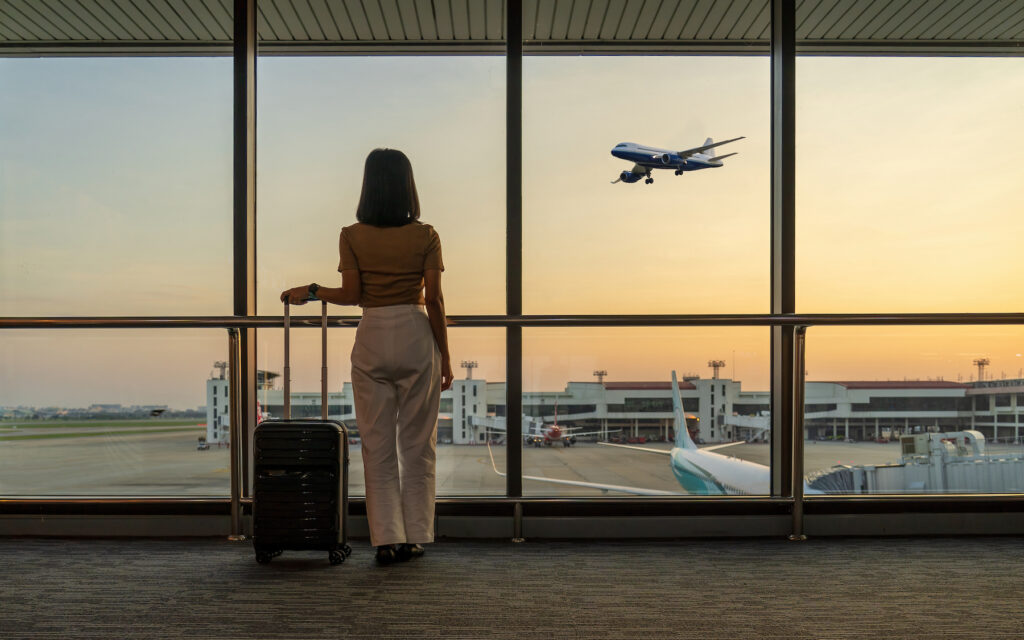
Can AI Plan Your Vacation? What to Know Before Your Next Trip
Here’s how some popular travel-planning tools are adding AI into your experience.

In the hustle and bustle of modern life, it feels like we all need a vacation. But what happens when booking travel and building itineraries feels impossible? Some turn to travel planning experts or locals, who have insider knowledge and a personal perspective. Others opt for digital services—many of which are integrating artificial intelligence into their platforms.
According to a National Research Group study, 61% of consumers would consider conversational AI for trip planning. About 46% of all consumers anticipated a net positive impact on their travel, compared to just 18% foreseeing a negative experience.

Getty Images
Online travel agency Expedia has rolled out Project Explorer, an OpenAI-based travel assistant. Users can have conversations with the bot to build a custom guide in real- time, with itineraries, hotels, and activity recommendations. Expedia also has more than 300 behind-the-scenes AI machine-learning algorithms that help with predictions and price tracking to support consumers every step of the way.
An Expedia study found that American consumers will make about 140 visits to travel sites while they plan a trip. Also, a single vacation on Expedia involves 1.26 quadrillion possible variable combinations, such as hotel locations and price ranges.
That’s where AI comes in, according to Expedia Distinguished Product Manager Jeff Miller, to help make sense of it all with more open-ended explorations: “No human can understand all of those different combinations for themselves, even with the best intentions and the best will in the world.”
He says Expedia wants to make its AI features as personalized and customizable as possible, rather than generic-sounding chatbot responses. Project Explorer recalls your prompt and previous preferences as you interact with it.
Miller even uses Project Explorer on his own time. As he juggles three upcoming trips—business and relaxation—he used the chat experience to explore hidden gems and unexpected experiences in Southbank London. His tip for hesitant users? Try something crazy, like three things involving dogs in London.
At Priceline, an online travel agency, artificial intelligence is used to streamline the booking process, as well as personalizing and optimizing every aspect of the travel journey, according to Martin Brodbeck, Chief Technical Officer.
Last summer, Priceline deployed Google Could’s generative AI technologies, including a full-scale travel assistant chatbot named Penny, an AI-powered personalized hotel booking experience, and more. Also, in February, Priceline launched more than 30 new features. From GenAI Itineraries to Priceline Wallet and more, Brodbeck says the agency’s AI implementations help customers easily and intuitively enhance every aspect of their trip.
“We were an early adopter of GenAI because we saw the huge potential it had to help with everything from the beginning stages of trip inspiration to booking and customer service,” he says. “The end result is unparalleled convenience and personalized assistance for our customers throughout their travel planning.”
As Priceline hopes to continue innovating through AI, Brodbeck suggests users try exploring the technology at whatever pace they feel comfortable, such as with the chatbot Penny: “Customers can dip their toes in by asking simple questions that aren’t specific to their trips.” Ask Penny for a deal, and the bot will return with information about eligible coupons.

Google is also getting more into the AI game. In Search, a generative AI feature lets you ask your burning questions. Search can provide trip ideas or sample itineraries, as well as flight and hotel information, informed by online information and Google reviews. To try it out, head to Search Labs’ Search Generative Experience.
And in Maps, Google helps summarize restaurant and site recommendations based on community reviews and even identify menu items from photos, all powered by AI. Curate customized lists for your next weekend away.
Though AI can be a solid starting point, that doesn’t mean AI is ready to fully replace real people, either. The NRG study reported just 6% of US travelers have actually used AI to help plan a trip. They cite reasons like a lack of trust—81% of consumers said they’d double-check everything rather than trusting the AI.
So can a chatbot really help craft the perfect vacation? You’ll just have to check it out for yourself.
